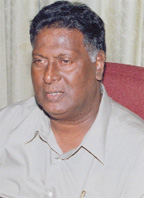Denmor cited in case study
‘Denmor Garments head: `I remember eating salt and rice many days and living in a little hut with a thatched roof and going to school without any shoes on my feet. I know what being poor is like and I hope that by working and training with underprivileged women Denmor can make a difference in their lives and the state of the country on a whole ’
Doing business with the poor can be business as usual if the right strategies are followed according to a new global report that points to initiatives that can be explored, and the success stories such as the local company Denmor Gar-ments.
With the private sector emerging as a development partner, businesses are being challenged to be inclusive in allowing poor people to participate more in markets and take advantage of the opportunities
The report; ‘Creating value for all: Strategies for doing business with the poor’, launched yesterday by the United Nations Development Programme (UNDP) listed a case study of Denmor Garments among 49 others in an effort to clarify how businesses are creating value in the difficult market conditions that so often characterize poverty- and how in the process, they can also create value for the poor.
Denmor, which produces garments mainly for export to the US, employed a strategy of investing to removing market constraints- educating staff with the basics of how to read, write and count- also training women in health and hygiene, and also for personal empowerment while cross-training staff so that each can perform every step in the production and can respond better to rushed orders and tight deadlines.

Beyond the tangible and immediate value of such an investment, the report pointed out that, removing constraints in knowledge, skills, infrastructure or access to financial products and services can create intangible and longer term value through building brand image, employee morale, corporate reputation and the power to develop new capabilities and strengthen competitiveness.
Other strategies named in the report that are consistent with the local context and objectives of each business are adapting products and processes, leveraging the strengths of the poor, combining resources and capabilities, and engaging in policy dialogue with government.
One of the key issues emphasized in the report was that the private sector can alleviate poverty and contribute to human development in various ways since doing business with poor people brings them into the marketplace- a critical step out of the path of poverty- and for entrepreneurs and firms it drives innovation, builds markets and creates new spaces for growth.
The report shows how entrepreneurs can serve the poor as clients and customers and can also include the poor as producers, employees and business owners. It gives many examples of firms which by doing business with the poor are generating profits, creating new growth potential and improving poor people’s lives.
Denmor’s Managing Director, Dennis Morgan commented yesterday how his own experience of growing up in poverty has pushed him to do business with persons from impoverished communities particularly women, adding that the difficulties poor people face are never really highlighted in full.
He said that Denmor has over 1,000 staff mostly women, and that the company has not only invested in their health and education but also makes provision for transportation and caters for their personal development.
“I remember eating salt and rice many days and living in a little hut with a thatched roof and going to school without any shoes on my feet. I know what being poor is like and I hope that by working and training with underprivileged women Denmor can make a difference in their lives and the state of the country on a whole”, Morgan said.
Presidential Advisor on Governance, Gail Teixeira called the report a timely one noting that its emphasis on inclusive markets is critical to any country. However, she said that a number of factors must be considered in assessing the issue of poverty with a goal of alleviating it.
Teixeira pointed to the increasing number of female-headed households in the country and the absence of fathers in homes as issues to be addressed when looking at poverty in “a certain context”. She mentioned the name of prison escapee Jermaine ‘Skinny’ Charles who was recently gunned down saying that he was one among many who grew up in female-headed households.
The issue of why women are among the highest number of persons unemployed needs to also be considered according to Teixeira. She said that issues such as day care facilities and transportation should all be taken into consideration when addressing the participation of all in the workforce.
Dr. Peter deGroot of the Private Sector Commission pointed out that there many business models similar to Denmor operating in Guyana today which include the poor on the demand side as clients and customers and on the supply side as employees, producers and business owners at various points in the value chain, adding that such models build bridges between the poor and for the mutual benefit of both.
“Whether it be the organic crab wood products exporter who backward integrates with Amerindian women in hinterland communities to source the raw material or a juice manufacturer who creates a market for fresh fruit and develops a system that encourages and supports small rural farmers”, he added.
DeGroot said that the private sector’s efficiency in encouraging development however depends on the vitality of the government and on the quality of political, social and economic institutions. He said that this way the private sector can benefit from a market economy that gives businesses encouragement to expand their productivity. (Iana Seales)
